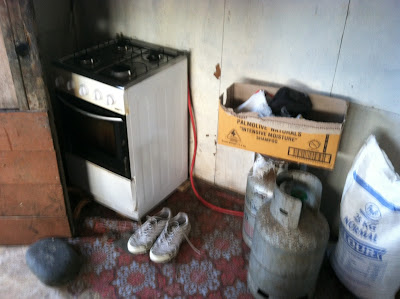A couple of weeks ago I was interested to read this article on Aspiring Mormon Women. Then, even more interested, I found this one, from the NY Times.
As a synopsis: there is a girl named Keila Merino who teaches elementary school in New York and runs ultramarathons in her spare time.* Her training miles add up to over a hundred every week, even when she's not training for something big. But these days, she is.
In 1978, a beautiful, lanky South African grandma named Mavis Hutchinson ran across the United States from Los Angeles to New York in seventy days. She averaged around forty miles a day that whole time.
That is the distance between Salt Lake City and Provo peeps.
On foot.
For more than two months.
Every.
Single.
Day.
This year, under the auspice of raising money for a children's running group in New York, Keila set a goal to beat Hutchinson's record and do it in sixty-eight days. Math= she would need to average almost fifty miles every day for the length of time between Independence Day in July and Labour Day in September.
I happen to love ultra-sports--particularly endurance running--and I discovered all of this on the very day that a new leg of my own race was starting.
It is my goal to submit my thesis in 58 days. Those who have written a PhD dissertation know that it is no mean feat. It has taken me almost three years just to do the research (and I still feel like I could fill up another year!) Writing is a different beast altogether. As in an ultramarathon, where a twisted ankle, dehydration, nutrient-deficiency, inclement weather, or any number of a score of unexpected setbacks could derail your whole plan (as it did Keila's in the end-- #spoileralert), lack of discipline, material, quality, or confidence, personal problems, sickness, writers block, or any number of other issues can derail even the best, most dedicated of students. And I don't even claim to be one of them.
But reading about Keila and Mavis, and thinking of the ultramarathoners I know in my life (speaking metaphorically rather than literally), I found a new identity:
I Am An Ultrarunner, and My Race Is Not Yet Over.
 |
| Keila's beautiful sunrise shot |
1) my Heavenly Father and my responsibilities to Him
2) my family and my responsibilities to them
So, this is my plan: Keep running. Take each day as it comes. Don't worry about the future but just do your best today. And, take time to enjoy the scenery as it goes by--to appreciate the views you get from the road. I know when this race is over, I'll be better and stronger for having run it. I love it.
See you at the finish line!
Love,
me
*Ultramarathons are any races longer than a traditional marathon. The most common distances for ultramarathons are 70 kilometres, 100 miles, or longer.






































